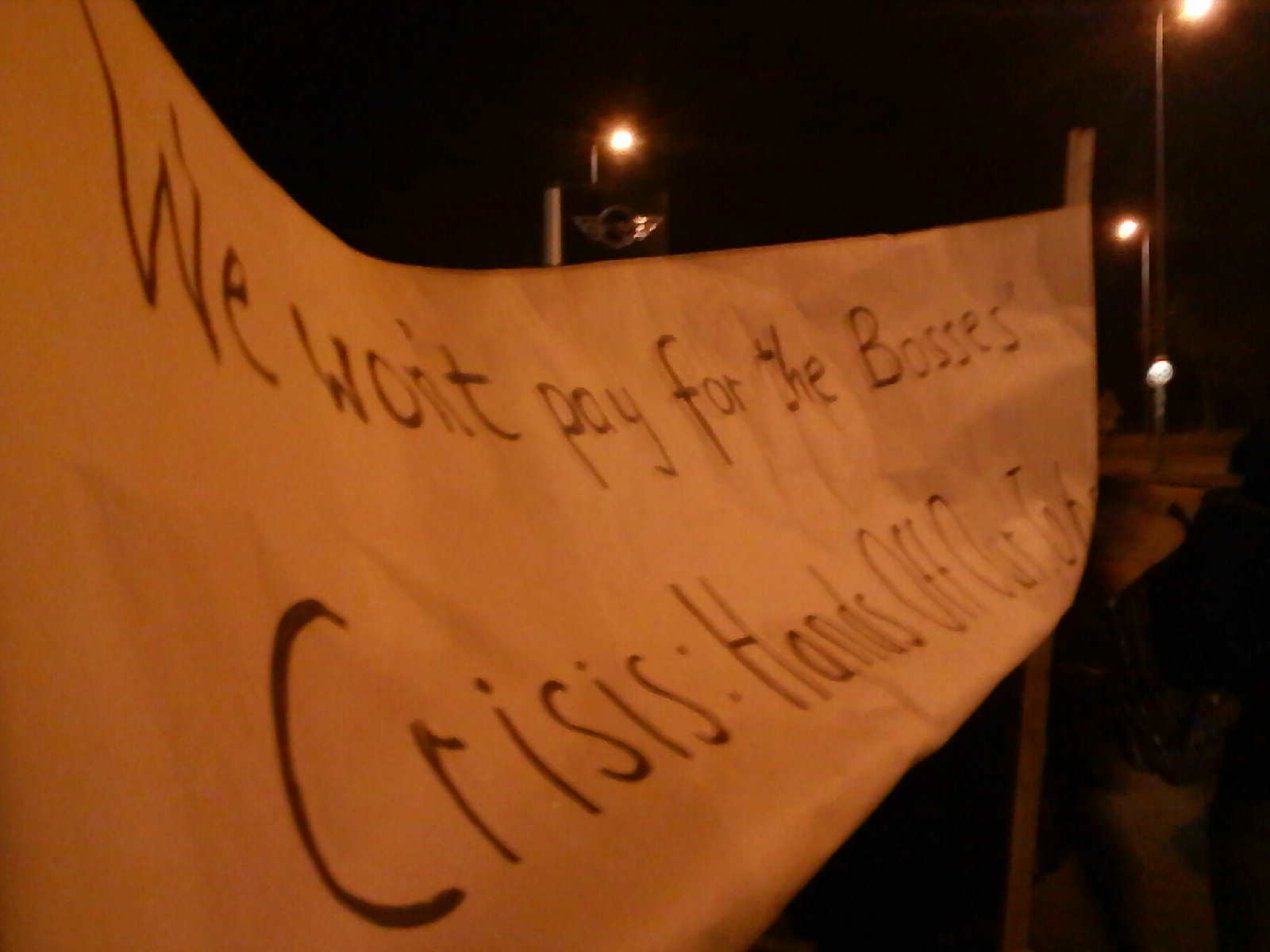
 |
||||
|---|---|---|---|---|
| Volume 50 Number 33, August 29, 2020 | ARCHIVE | HOME | JBCENTRE | SUBSCRIBE |

Picket of the BMW owned factory at Cowley
BMW has announced it will cut around 10% of its workforce at its plants in Oxford, Birmingham and Swindon. The majority of the 520 jobs are to be lost at the Oxford Mini factory, where 400 of its 4,000 staff are to go. 100 of Birmingham Hams Hall's 1,200 workers are to be made redundant and BMW Swindon is to lose 20 of its 600 employees. All workers affected are agency staff, though the company has indicated further plans to reduce its non-agency workforce by a "small" amount.
BMW Mini is the largest industrial employer in Oxfordshire, producing 222,340 cars in 2019, and currently building about 1,000 per day. The company is cutting that by 10-20% to 800-900 vehicles per day, potentially taking the annual total to below 200,000. Alongside shrinking the workforce, BMW is replacing the existing three-shift pattern with two shifts from mid-October.
The cut of 400 workers amounts to nearly half of the 950 agency staff employed at Oxford, who are supplied to BMW by Gi Group.
This will be a major blow to these staff. Agency staff are not entitled to redundancy pay, and as such, are treated by the company as a pool to grow and shrink at will. In one example, BMW Oxford axed 850 agency jobs in 2009, only to re-hire a short time afterwards as market conditions changed. In the present conditions, the outlook is far less certain. These workers are left wondering: what will happen to us now?
BMW human resources director Bob Shankly said: "Like other automotive manufacturers, our volume forecasts for 2020 have had to change accordingly. We have, therefore, made the difficult decision to adjust our shift patterns at Mini Plant Oxford from October. This will give us the flexibility we need to adapt our production in the short to medium term, according to developments in global markets."
"We have sought to protect as many jobs as we can, while also taking the necessary steps to ensure the stability of our business in light of this current period of volatile and unpredictable market conditions," he added.
It is an insult to the agency workers, and an attack on all workers at the plant, to treat them as a cost to be thrown onto the scrap heap. They have a right to a livelihood, and a right to a claim on the product that they have played a vital part in creating. It is this claim on the new value they have produced through their work that is considered a cost, while the claims of the owners of capital - the shareholders and holders of debt - are treated as sacrosanct. Why can't these owners take a hit?
Labour MP for Oxford East Anneliese Dodds and leader of Oxford City Council Susan Brown said in a joint statement: "While the plant is very productive, unfortunately the Covid-19 crisis has posed major difficulties for the automotive industry and the ills afflicting industry world-wide are impacting the plant here, too. We will both continue to work with BMW Cowley to do what we can to ensure the future of the plant and to protect local jobs."
BMW Mini Oxford, which was closed for nearly two months from March until May during the lockdown, places the blame on the effects of the Covid-19 pandemic. Certainly, in conditions where the health and of the population and health of "the economy" are pitted against each other, it is the case that the pandemic and lockdown have seriously exacerbated the problems of an economy that is socially integrated but privately controlled. The plant itself, in the drive to reopen quickly, saw nine of its workers test positive for the virus in June, eight from one section on the same shift, and one case from elsewhere.
But in no way can sacking hundreds of workers be said to be a solution. Losing these workers and scaling back to a lower level of production is purely destructive. Why not share the remaining work? Hours could be reduced, but pay must be retained. It is not the workers who should take the hit. There should be no redundancies, and further, agency workers should be hired on full contracts.
Workers across the sector and the economy as a whole are faced, particularly at this time, with the need to limit the power of the monopolies to impose their dictate. These powerful private interests are using the conditions of the pandemic to block the workers from asserting their own rights and interests. People's lives and livelihoods are treated as just so much collateral damage. In the face of this, workers need the decisive say in decision-making, to defend their claims on the product of their own work against those who claim ownership over it.